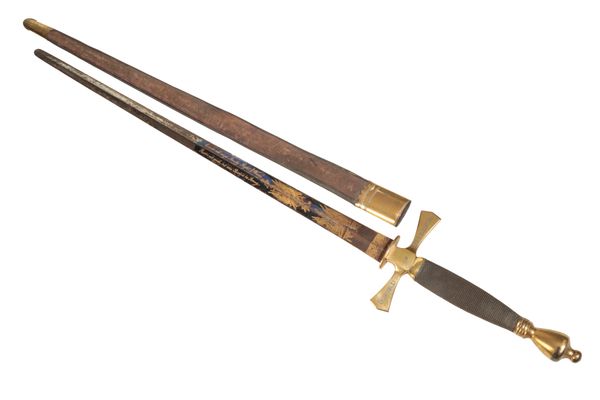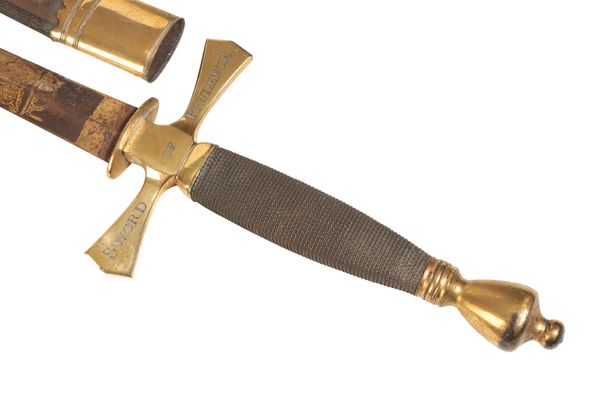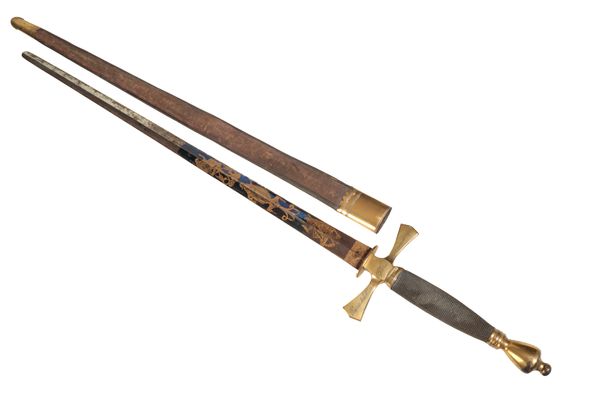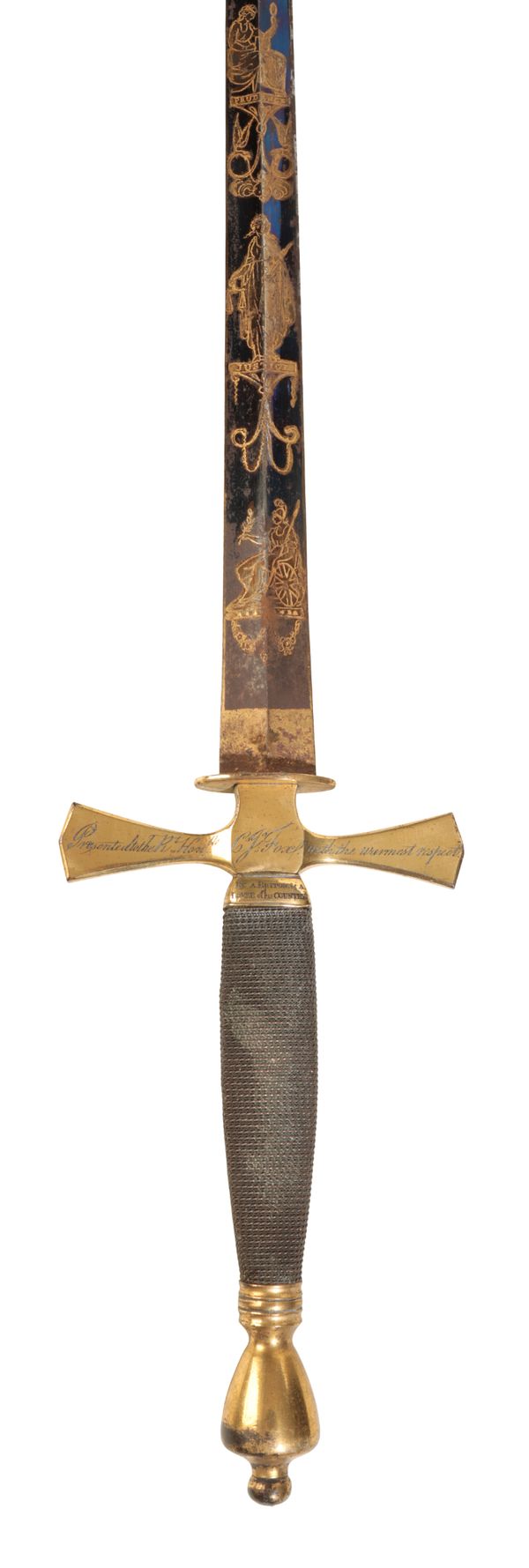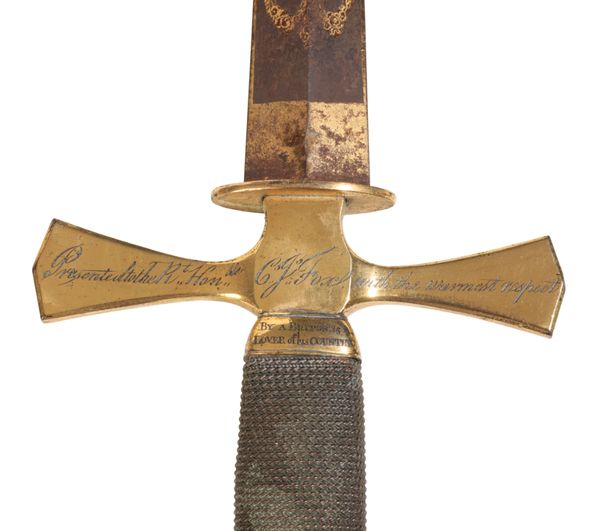A George III gilt-etched and blued-steel presentation sword, late 18th / early 19th century, engraved to the gilt metal quillons on one side 'SWORD OF PRUDENCE' and on the other, 'Presented to the Rt Hon.ble C. J. Fox, with the warmest respect / BY A BRITON & A LOVER of his COUNTRY', with double-edged blued steel and parcel-gilt blade, gilt-etched on one side 'Consider well weigh Strictly Right & Wrong, / Resolve not quick, but once resolv'd be Strong', above a martial trophy and British emblem, on the
| Estimate: | £1,000 - £2,000 |
| Hammer price: | £3,000 |
other side gilt-etched with the figures of Prudence, Justice and Britannia; wire-bound grip and gilt metal vase-shaped pommel; with the original wood and gilt metal scabbard, original crimson fabric covering worn
98cm long
Provenance: Presented to Charles James Fox (1749-1806) and by descent.
By repute presented by the Earl of Ilchester to a relation of the present owner.
Charles James Fox (1749-1806) was the leading Whig statesman of the late 18th century, and political opponent of the Tory Prime Minister William Pitt the Younger. Fox's political career lasted over 38 years. Fox championed the causes of liberty, religious minorities, the French Revolution and was a fierce opponent of the King, George III. The King’s eldest son George, Prince of Wales was a Fox-ite ally and regularly wore a buff-coloured waistcoat, indicating his political support for the Whig party.
Edmund Burke’s eulogy of Fox, in the House of Commons, after he took on the tyranny of the East India Company, 1 December 1783: "He well knows what snares are spread about his path, from personal animosity…and possibly from popular delusion. But he has put to hazard his ease, his security, his interest, his power, even his…popularity. …He is traduced and abused for his supposed motives. He will remember that obloquy is a necessary ingredient in the composition of all true glory: he will remember…that calumny and abuse are essential parts of triumph. …He may live long, he may do much. But here is the summit. He never can exceed what he does this day." The quotation was used by President (at the time Senator) John F Kennedy as the Frontispiece to his book Profiles in Courage, 1956.
The inscription on the blade is taken from Charles Churchill's poem "Night, an epistle to Robert Lloyd", 1761.

